|
TRANSLATE THIS ARTICLE
Integral World: Exploring Theories of Everything
An independent forum for a critical discussion of the integral philosophy of Ken Wilber
 David Christopher Lane, Ph.D.
Professor of Philosophy, Mt. San Antonio College Lecturer in Religious Studies, California State University, Long Beach Author of Exposing Cults: When the Skeptical Mind Confronts the Mystical (New York and London: Garland Publishers, 1994) and The Radhasoami Tradition: A Critical History of Guru Succession (New York and London: Garland Publishers, 1992). David Christopher Lane, Ph.D.
Professor of Philosophy, Mt. San Antonio College Lecturer in Religious Studies, California State University, Long Beach Author of Exposing Cults: When the Skeptical Mind Confronts the Mystical (New York and London: Garland Publishers, 1994) and The Radhasoami Tradition: A Critical History of Guru Succession (New York and London: Garland Publishers, 1992).
DOUBTING MIND
Great Skeptical Thinkers
Susan Blackmore |
Brian Cox |
Martin Gardner |
Sam Harris |
Christopher Hitchens |
Harry Houdini |
Ray Hyman |
Phillip J. Klass |
Joe Nickell |
James Randi |
Adam Savage |
Eugenie Scott
Christopher Hitchens(Justin) Yuan-Chun HsuAt this moment, the World Health Organization has declared COVID-19 a pandemic. By April 8th, 2020, over one million people on the Earth have been confirmed positive for COVID-19 with over eight-seven thousand deaths. Unquestionably, this pandemic has greatly disrupted our society and economy. Many people are in a panic because we are afraid of death. This causes many theists to believe that this coronavirus is the punishment of Almighty God. In fact, Christopher Hitchens, a great skeptic, reminds us that humanity is so good at pattern-seeking (and seeing meaning in things that are merely random) that we remain dutifully unaware of how probability is at the heart of many natural disasters. Throughout his life, Hitchens believed organized religions were harmful. He clearly shows that we are free to believe in anything we wish, but religions become dangerous when by their dogmas they try limiting the development of science, technology, and medicine. 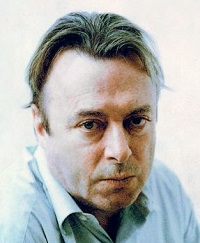 Christopher Hitchens Christopher Hitchens was born on April 13 of 1949 and died on December 15 of 2011. As one of “Four Horsemen of Atheism,” he argued that “all religions are false, harmful, and authoritarian” and asserted that atheism was a more honest view of life. Hitchens' parents had him attend two private Christian schools, Mount House School and Leys School—for the purpose of a safe environment and building a strong moral background. Then in 1967, he was admitted to Balliol College, Oxford, where he studied Philosophy, Politics, and Economics. And within three years, Hitchens had graduated with a Bachelor's degree and worked for the political left weekly New Statesman. While he was working there, he met two great English authors, Ian McEwan and Martin Amis. Unfortunately, around this time, Hitchens's mother, Yvonne Jean Hitchens, committed suicide in 1973. Because of this heartbreaking experience, he wrote what would become his first lead article for New Statesman. When he was 28 years old, he left New Statesman to work at Daily Express, but soon, Hitchens returned to New Statesman as a foreign editor in the next two years. In 1981, Hitchens married Eleni Meleagrou and moved to New York City while he was writing several new books. Hitchens explained that he and his wife had a lot in common, and had a very good marriage with two children. However, their marriage ended in divorce in 1989, and which he announced in the Cypriot Terrorist: “We had a good marriage, and that is why we had a good divorce.” A couple of years later, he married Carol Blue and remained together until he died of cancer in 2011. Throughout his early life, Christopher never got along with his brother Peter Hitchens, a Christian and an English conservative journalist. They both were raised in the same environment and attended the same private schools, but the main difference between them was the belief in the existence of God. While studying in private schools, Christopher often challenged teachers. Later in his speech he explained: “Why don't they call for prayer in the trains, or prayer in the stock exchange? They want it in schools. Why do you think they want it in the schools? Because they want a captive audience. They want an audience they can mold and can form. Well, they're not going to be allowed to have it.” Some interesting facts about these two brothers were that Christopher and Peter publicly debated each other, regarding the Iraq War and religion. Moreover, in Peter's review on one of Christopher's great works, God Is Not Great, Peter claimed: “my brother's book made a number of incorrect assertions.” Later in life, Christopher discovered his mother was Jewish. Then, he had identified himself as a secular Jew. Overall, Christopher Hitchens did not deprecate the power of faith. However, he was against all religions because religions had created a god-like figure by manipulating human's primitive fears — death. After publishing God is Not Great: How Religion Poisons Everything, many theists were ruffled and offended by the title of the book. Some theists pointed out their particular traditions were really genuine and spiritual, unlike some of the unethical religions. Therefore, the title of this book is disrespectful and not true. In fact, Christopher Hitchens believed all religions were wrong in the same way, but “not all equally bad all the time.” For instance, as Hitchens mentioned in his debate, the Roman Catholic Church was the most dangerous religion in the world in the 1930s because it was leaning towards extremes of fascism. Similarly, both fascism and Catholicism had a lot in common; they were both rigidly undemocratic. In fascism, the leader had absolute power over everyone. For Catholicism, devotees pay allegiance to the Pope. And Hitchens often referred to this relationship as slavery because that did not give us free will, and we could not choose. During the Sharpton Debate, one audience member asked “If religion had meaning and purpose to 95% of people, why would you take it away and replace it with atheism, which only gave meaning to the rest of 5%?” Moreover, some audience members questioned, “Why don't you just stay home if you don't believe god?!” Hitchens defended his argument with a really amazing and humorous analogy. First, he analogized religions as people's favorite toy, and it would remain so “as long as we're afraid of death.” Then, we would be perfectly happy for people to keep their favorite toys and play at home. Moreover, people could do any crazy things with these toys, such as hugging them or kissing them. Also, they could share the toys with people who wanted to play. However, as Hitchens stated, “they could not play toys at my home,” and they could not definitely force my children to play the toys with them. If and only if people would keep their favorites at their home, then having these toys were absolutely fine. This comparison highlighted the problem of religious bullying and intimidation, which could infect us in daily life. Because these religions would interrupt and restrict humans from the development of science, economy, and medicine. In short, atheists talked about god, not because God existed, but theists existed and would try to convince everyone about the existence of God. Furthermore, while Hitchens was debating with William Lane Craig about the existence of God, Hitchens claimed, “I appear as a skeptic, who believes that doubt is the great engine, the great fuel of all inquiry, all discovery and all innovation.” Due to this reason, he started to challenge conservative theists, and this quote became one of his most famous quotes. Also, since the odds of the Big Bang Theory in cosmology is so extremely rare, many atheists assumed that the university was designed by a Supreme being. But that still did not prove the existence of a loving God because that did not prove this Creator cared about humans and answered prayers. As Hitchens stated in this speech, “you cannot get from deism to theism.” Most importantly, simply saying “God knew it already” to all remarkable discoveries about the universe was not a strong argument at all. For example, in the early 19th century, Charles Darwin and Alfred Russel Wallace first published a new evolutionary theory on the transmutation of species, and this was for many unacceptable because it goes against Christianity's Genesis' creation narrative, which was about Adam and Eve. Therefore, some established Christian churches dismissed the ideas and attacked the theory. Not until evolution was widely accepted and became a fact, more than just an opinion, did theists begin to interpret natural selection illuminating God's design. Furthermore, Hitchens pointed out that as pattern-seeking creatures we had gone too far because “if we couldn't get a real theory, we would go with a conspiracy theory.” Although pattern-seeking was first used to create hypotheses at the beginning of many fields, those hypotheses were falsifiable, and the existence of God, though, was unfalsifiable. Christopher Hitchens is one of the great skeptics in history and is a hero to scientists. As the evolutionary biologist Jerry Coyne wrote in his blog, “There was no other humanist or atheist who so excelled in all the skills of oratory, writing, and thinking—and the man was ferociously eloquent and literate. There's nothing else to say except I wish he were here.”
Further ReadingMortality, Twelve; Reprint edition (May 13, 2014) God is Not Great: How Religion Poisons Everything, Twelve Books; 1st edition (May 1, 2007) Hitch 22: A Memoir , Twelve; Reprint edition (June 3, 2011) Does God Exist? William Lane Craig and Christopher Hitchens at Biola University on April 4th, 2009. 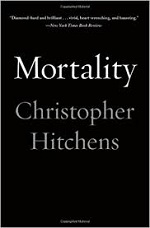 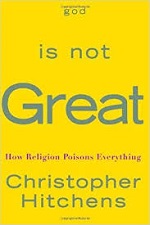 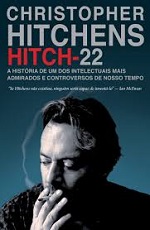
PREFACE | David Christopher Lane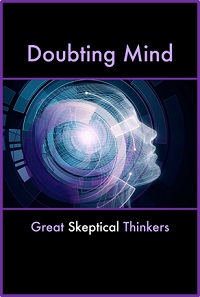
Before the current pandemic altered our day to day lives, the MSAC Philosophy Group had been working on a book entitled, Doubting Mind: Great Skeptical Thinkers, which contained separate essays on a number of notable researchers who champion critical thinking and skepticism when analyzing paranormal claims, such as UFOs, astrology, and various religious claims. The book has now been finished, though it took a bit longer than we anticipated. The word skeptical has too often been conflated with the word cynical. The former term comes from the Greek word skepsis which properly defined means "to look, view, observe." Or, as Miguel de Unamuno explained in 1924 in his book, Essays and Soliloquies, "Skeptic does not mean him who doubts, but him who investigates or researches as opposed to him who asserts and thinks that he has found." To be cynical, on the other hand, indicates that the person is "[pre] disposed to disbelieve or doubt the sincerity or value of social usages or personal character or motives and to express it by sarcasm and sneers, disparaging of the motives of others, captious, peevish." Therefore, it is important to understand that a skeptic is not one who ad hoc dismisses borderland ideas, but is one who is willing to go the extra mile to gather more (not less) information about any given phenomenon. As I have often remarked (to the obvious consternation of certain cult followers), we, humans, are too gullible when we accept miraculous claims without further investigation. We are cheap sluts for the paranormal, believing too easily in conspiracy theories that defy the known law of physics. There are many reasons why this is so, but I suspect that in a world where everything eventually eats one another to survive (whether it be a vegan eating plants or a carnivore eating meat), any organism that can develop a buffering illusion to survive such a horror show has an evolutionary advantage over others that cannot. This came into sharper relief for me this past week as I watching the British made television mini-series, War of the Worlds, where in one particularly poignant scene a mother who has just witnessed the death of her children at the hands of an alien species realizes that there is no point in continuing to live in such a horrific environment. She opts to shoot herself and the viewer instead of being shocked perfectly sympathizes with her decision. Nature is a madhouse if looked at objectively and therefore it is not surprising that we have evolved all sorts of mental defense systems in order to live long enough on terra firma to pass on our genetic heritage. Since we are the survivors in this boiling cauldron of eat or be eaten, we have inherited a variety of tools to ward off the true existential dread that can overcome any being that becomes too keenly aware of how this DNA game plays out. I mention all this as a necessary preface, since no matter how well versed we may become in science (and trained to become good doubters, in the positive sense of that term), we still retain at the core of our beings a deeply emotional component that defies a purely rational or logical way of being. We may act like scientists from time to time, but we are not scientists in the long term. We are vulnerable creatures and our myths and our fairy tales will persist even if we opt for agnosticism or atheism, though they may take on a different color and hue and justifications. Thus, this book provides us with but a small glimpse of how to think more rationally and critically, despite the sobering realization that we cannot be great skeptics all the time.
Comment Form is loading comments...
|